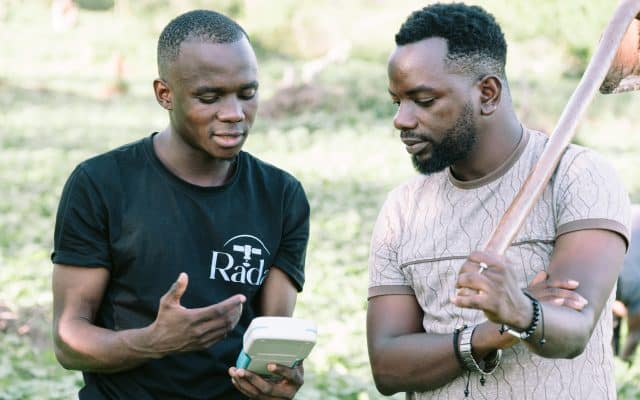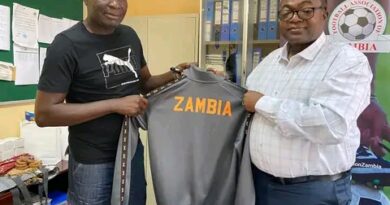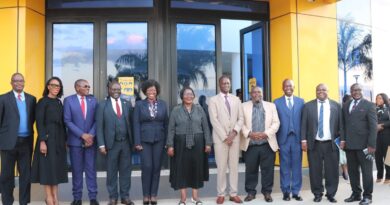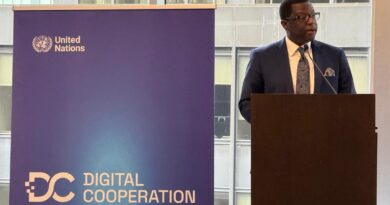AI Revolution Transforms Farming as Tanzanians Confront Climate Change
Tanzanian farmers and innovators are turning to artificial intelligence (AI) to address growing climate challenges, bridging critical data gaps and strengthening community resilience in the face of increasingly erratic weather patterns.
For generations, farmers like William Karatibu, a lifelong bean and maize grower, relied on traditional methods of weather prediction – observing ants, clouds and wind. But with climate change bringing heatwaves, droughts and unexpected floods, these signs have become unreliable. “The methods my parents taught me are not working anymore,” Karatibu explained, describing years of crop failure and declining food security.
Tanzania has witnessed a steady decline in average rainfall and more frequent extreme weather over the past two decades. According to the Tanzania Meteorological Agency, mean monthly rainfall fell from 83.3mm (1981–2010) to 78.8mm (2012–2016), a drop of around 5%. With 65% of the population engaged in agriculture – mostly smallholder farming – the impacts are widely felt.
Smallholder farmers face not only climate uncertainty but also a lack of reliable data to guide their decisions. AI offers a potential lifeline. By processing vast amounts of information, from satellite imagery to soil samples, AI systems can provide precise, real-time insights on weather, soil health and crop management.
Essa Mohamedali, an AI strategist and co-founder of the Tanzania AI Community, is among those driving innovation. He notes that while data exists, it is often scattered and siloed. “One key insight is that AI in Africa is being driven by grassroots communities – passionate individuals, recent graduates, and first-time founders,” he said, emphasising the importance of locally grounded solutions.
Karatibu’s fortunes shifted after discovering Rada360, a Tanzanian precision agriculture start-up and winner of the Adaptation & Resilience ClimAccelerator. The platform uses AI and Earth observation data to deliver hyperlocal forecasts and farming advice via mobile phones.
“With Rada360 I now know my soil status, nutrition levels, and the right time to plant,” Karatibu said. “I’ve never counted any loss since using their technology.” His yields increased, income improved, and his family gained food security – sparking interest from neighbouring farmers.
Rada360 analyses satellite data to monitor crop health, water stress, pests and diseases, while offering fertiliser recommendations and yield predictions. Its hyperlocal forecasts enable farmers to plan planting, irrigation and harvesting with greater accuracy.
Rada360 is one of four ventures supported by the Adaptation Innovation Cluster, run by Climate KIC and SmartLab with funding from Irish Aid. The programme backs local innovations in climate-smart agriculture, resilient seeds and circular economy solutions such as insect protein.
Other initiatives include the Training Programme for AI-Driven Climate Change Solutions, developed with AI consultancy Omdena, which equips Tanzanians with the skills to design AI tools for their own climate challenges.
Yet experts caution that AI itself comes with environmental costs. Training large models consumes huge amounts of energy and water, while hardware production contributes to mining and emissions. “If we are serious about using AI to fight climate change, we must ask: who really benefits, and at what cost?” Mohamedali said. He argues that ethics must be “baked into all AI training – technical and non-technical – to ensure sustainable outcomes.”
For Mohamedali, AI literacy is key to climate resilience. “As familiarity grows, I’ve seen adoptees with a lot more wonder in their eyes and thoughts for what more it could do,” he observed. By equipping local communities with AI knowledge, Tanzanians are not just consumers of foreign technology but leaders shaping innovation for their own needs.
Climate KIC’s Adaptation Innovation Cluster seeks to build long-term resilience by pairing grassroots knowledge with cutting-edge tools. By nurturing local start-ups, creating jobs and supporting food security, the initiative hopes to set an example of how responsible tech can serve people first.
“With the right support, these technologies can go beyond Tanzania,” Climate KIC said in a statement. “They could shape how the world thinks about responsible innovation – where it comes from, who builds it, and who it serves.”



